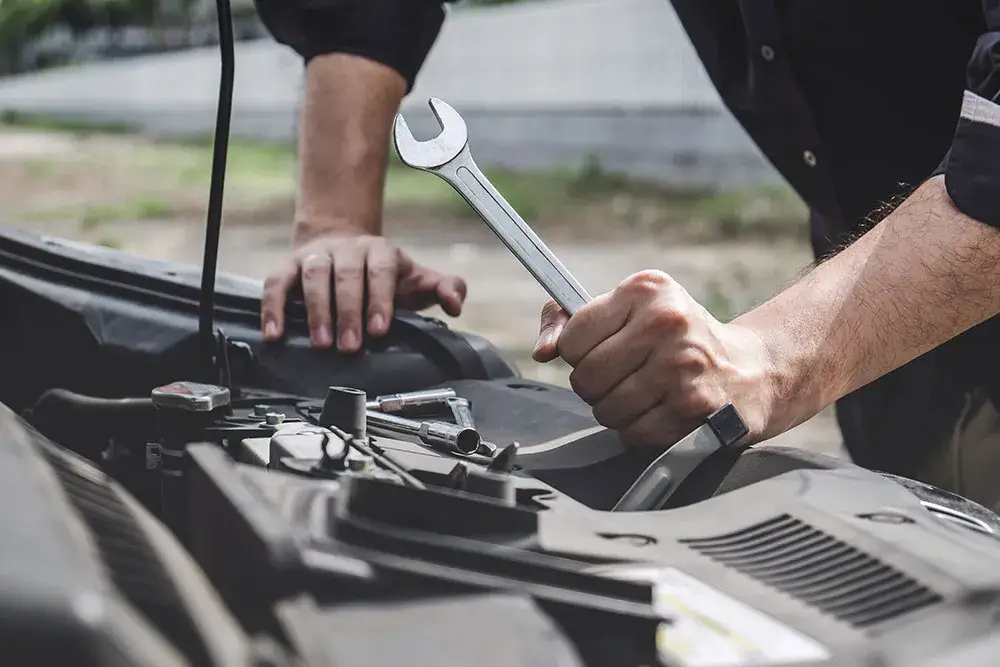Winter driving can be tough on your vehicle. Cold temperatures, snow, ice, and harsh conditions can all take a toll on your car, making it more susceptible to breakdowns and other issues. That’s where scheduled maintenance comes in. Regularly maintaining your car before and during the winter months can help ensure that it runs smoothly, efficiently, and safely, while also preventing costly repairs down the road. Here’s what scheduled maintenance can do for your car in winter and why it’s essential to stay on top of it.
1. Ensures Reliable Starting in Cold Weather
One of the biggest challenges in winter is getting your car to start, especially when temperatures dip well below freezing. Cold weather can significantly impact your battery, making it harder for the engine to turn over. During scheduled maintenance, your mechanic will check the health of your car’s battery, ensuring it has enough charge and is in good condition to handle the demands of cold weather.
- What it does: Scheduled maintenance ensures your battery is tested and, if needed, replaced before it fails in the middle of a cold snap. It also checks the connections for corrosion or looseness, ensuring reliable starts every time you turn the key.
2. Keeps the Cooling System in Top Condition
The cooling system is essential for regulating the engine’s temperature, and it works year-round, even in the winter. In freezing temperatures, having the proper coolant levels and mixture is crucial to prevent your engine from freezing or overheating. During scheduled maintenance, your coolant system will be inspected to make sure the coolant is at the right level and has the correct mixture of antifreeze to prevent freezing.
- What it does: Scheduled maintenance checks your coolant levels and antifreeze mixture, ensuring your engine stays at the right temperature and is protected from freezing, especially during cold winter months.
3. Improves Tire Performance for Winter Conditions
Tires play a vital role in keeping you safe during winter driving. Snow, ice, and wet roads can make it more difficult to stop, steer, and maintain traction. During scheduled maintenance, your mechanic will inspect your tires for wear, correct tire pressure, and ensure they are suitable for winter conditions. If you’re using winter tires, they’ll check for proper tread depth, ensuring they provide the maximum grip.
- What it does: Ensures your tires are in good condition for winter, maintaining proper tire pressure and tread depth to help you maintain control and safety in slippery conditions. It’s also the perfect time to switch out seasonal tires if needed.
4. Ensures Proper Functioning of Your Vehicle’s Heater and Defroster
Your car’s heating system isn’t just about comfort; it’s crucial for safety, too. The heater helps you stay warm, while the defroster keeps your windshield clear of fog and ice, allowing you to drive with proper visibility. During scheduled maintenance, the heater and defroster will be inspected to ensure they are functioning properly, preventing any issues with cabin temperature or visibility during winter.
- What it does: Ensures the heater is working efficiently and the defroster is operating as it should, providing you with a comfortable and safe driving experience even in the coldest conditions.
5. Improves Fuel Efficiency
Winter driving often means using more fuel—cold engines require more energy to run, and the added friction of snow and ice on the road can reduce fuel efficiency. Scheduled maintenance, including the replacement of air filters, spark plugs, and fuel filters, can help improve fuel efficiency by ensuring your engine runs as smoothly as possible.
- What it does: Helps maintain optimal engine performance, improving fuel efficiency even when driving in harsh winter conditions. Regularly changing air and fuel filters, along with spark plugs, helps your engine run more efficiently, saving you money on fuel.
6. Prevents Ice and Snow Buildup
The undercarriage of your car is especially vulnerable to the buildup of snow, ice, and road salt during winter. Scheduled maintenance can help clean these areas and check for any damage caused by road salt or debris that can cause corrosion over time. Your mechanic will also inspect the brake lines, suspension, and other components that can be impacted by the harsh conditions.
- What it does: Prevents the buildup of harmful materials that can cause rust and corrosion, ensuring that critical components are protected from winter damage. It also allows your mechanic to clean the undercarriage, helping maintain the longevity of your car.
7. Checks the Exhaust System
In winter, the cold weather can increase the risk of carbon monoxide buildup, especially if your exhaust system is leaking or damaged. During scheduled maintenance, your mechanic will inspect the exhaust system for any holes or leaks, ensuring it’s functioning properly and preventing dangerous gases from entering the cabin.
- What it does: Inspects the exhaust system for leaks, ensuring that exhaust gases are properly expelled and preventing dangerous carbon monoxide from entering your car’s cabin.
8. Improves Overall Vehicle Safety
The cold weather can put additional strain on various vehicle systems, including brakes, suspension, and steering. Regular scheduled maintenance includes thorough inspections of these systems, ensuring that your brakes are functioning properly and that the suspension is capable of handling the rough winter roads.
- What it does: Ensures that the key safety systems of your vehicle—brakes, suspension, and steering—are in good working order. This can prevent accidents and ensure you maintain control, even in slippery or icy conditions.
9. Keeps Your Wipers in Top Condition
Winter conditions often bring heavy snow, sleet, and rain, which can quickly obscure your vision on the road. Worn-out wiper blades can be ineffective in clearing your windshield, creating dangerous driving conditions. During scheduled maintenance, your mechanic will inspect the wiper blades and replace them if necessary.
- What it does: Ensures that your windshield wipers are in top condition, providing you with clear visibility during winter storms. It’s also the perfect time to replace wiper fluid with one designed to handle freezing temperatures.
10. Stay Safe and Prepared for Winter Driving
Scheduled maintenance is a crucial part of keeping your vehicle in optimal condition throughout the year, but it’s especially important as winter approaches. By addressing issues before they become serious problems, you can avoid breakdowns, ensure your car runs smoothly, and stay safe on the roads. Regular inspections of your car’s vital systems—such as the heating system, tires, battery, brakes, and engine—help prepare your vehicle to handle the challenges that come with winter driving. Make scheduled maintenance a priority this winter, and you’ll enjoy a safer, more reliable driving experience all season long.

